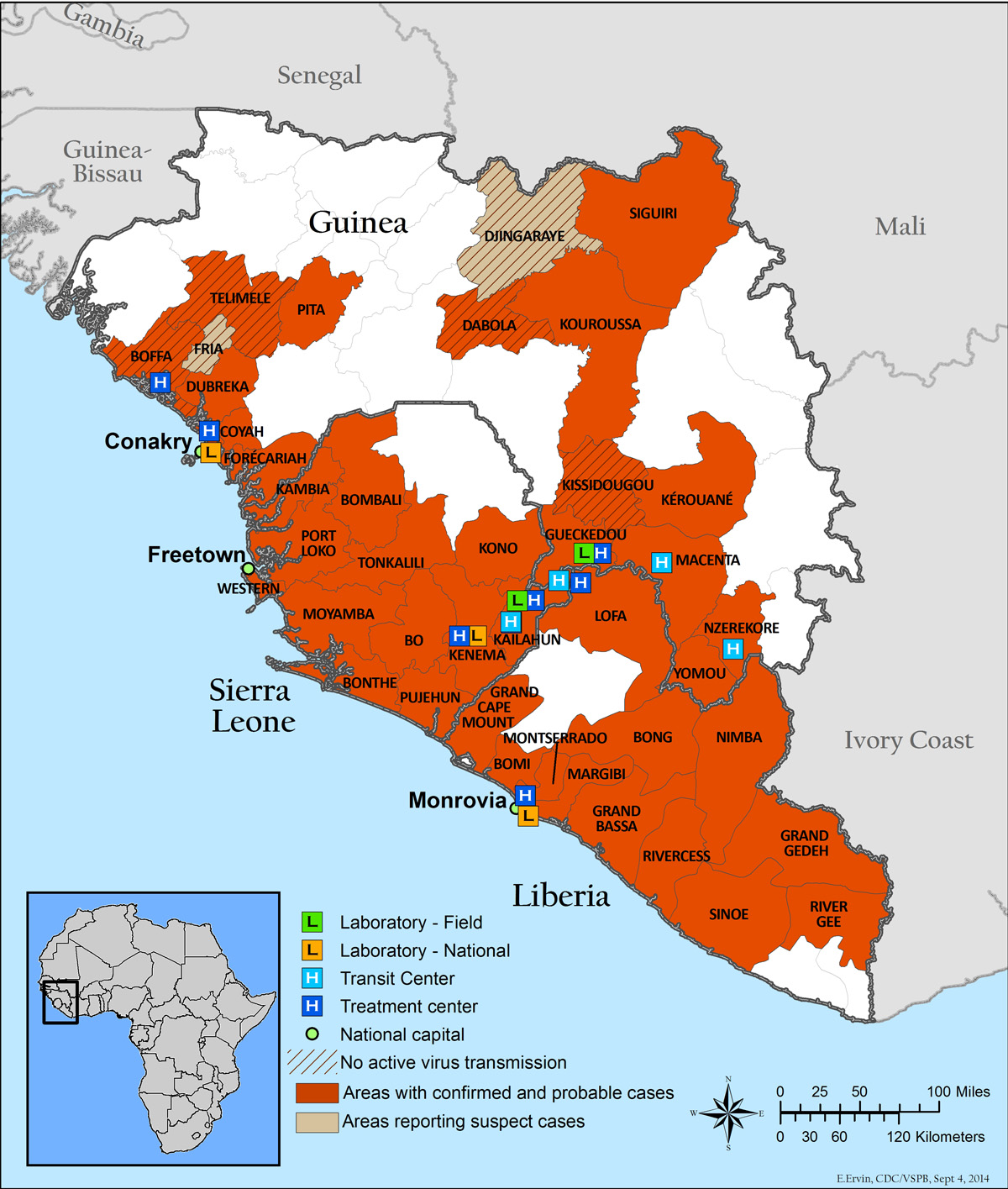
As covered in the previous articles, despite the media sensationalism, the developed world is well protected and prepared for any cases of Ebola that show up within its borders. Awareness is so high and health workers in possible landing zones are so well versed in diagnostic and containment practices that any potential cases are identified quickly, contained, and treated or cleared as needed. As of now, no cases have made landfall in the western world aside from the three that were intentionally transferred for treatment. While that may offer reassurance to those living outside of Africa, the epidemic is still raging out of control in Sierra Leone, Guinea, Liberia, and a handful of cases are active in Nigeria. Aside from Nigeria, none of these countries has been able to stem the spread of the virus, and more extreme measures are being forced.
Nigeria has been able to control the spread so far, and all of the cases in the country can be linked to one patient, Patrick Sawyer, who urinated on his care staff upon learning his diagnosis. Thus far sixteen people have contracted Ebola in Nigeria, and the first two cases that didn’t have direct contact with Sawyer were reported on August 20. Both new cases are spouses of health care providers who worked on Sawyer. Of those sixteen, five have died, and five have recovered, with the remainder being treated in isolation in Lagos.
The damage is much more severe in the other affected nations. Sierra Leone has had 804 lab confirmed cases, over 900 expected cases, and 392 deaths as of August 24. All 12 districts within the country have reported cases, and international observers believe the number of cases significantly exceeds the official reported figure. The fear and disbelief of Ebola has caused many people to hide relatives, or themselves from officials if they fear they are sick. This has grown to be such a problem that the government of Sierra Leona has made hiding cases of Ebola punishable by up to two years in prison.
Flights out of the country have also been suspended by both countries, and airlines. Aid can still be brought in by air, but all neighboring countries have barred flights from Sierra Leone. With that being said, the spread of Ebola within Sierra Leone has seemingly slowed, and with the draconian measures in place, the country seems to have stemmed the outbreak.
Similarly, Guinea has stopped the rampant spread of it within the country, and is working towards isolation and treatment of infected patients. This outbreak of Ebola started in Guinea, propagating in small villages before spreading into Conakry, and disseminating from there into most other regions of the country. As the disease has been controlled, several of these regions are now infection free, and the area of the country impacted is slowly shrinking.

This has not stopped neighbouring nations from imposing travel restrictions, or closing their borders completely, as Senegal and Cote D’Ivoire have. The UN has cautioned that restrictions hamper the ability to fight the disease and provide relief to the affected nations. Fear from the outbreak has also had economic effects on countries, as businesses have closed to stop the spread of the virus. The full extent of the damage won’t be known for some time though. Additionally, schooling which was scheduled to start at the beginning of September has been indefinitely postponed while the outbreak is active.
Sudan has had a handful of cases appear in the last week, and what appears to be a second strain of Ebola in some of them. This would mean a second unlinked appearance of the disease, although this one is considerably less deadly than the Zaire strain responsible for the current outbreak. Testing is still underway for these cases, but thus far it appears very limited in Sudan.
The final part of this series will discuss Liberia, the country hardest hit by this outbreak.




